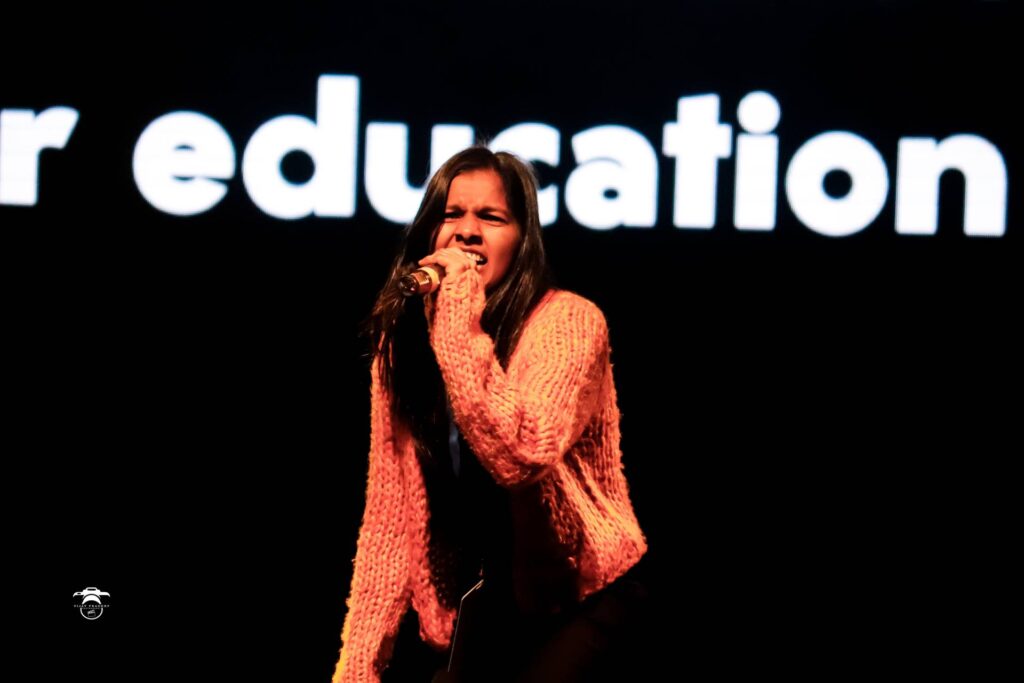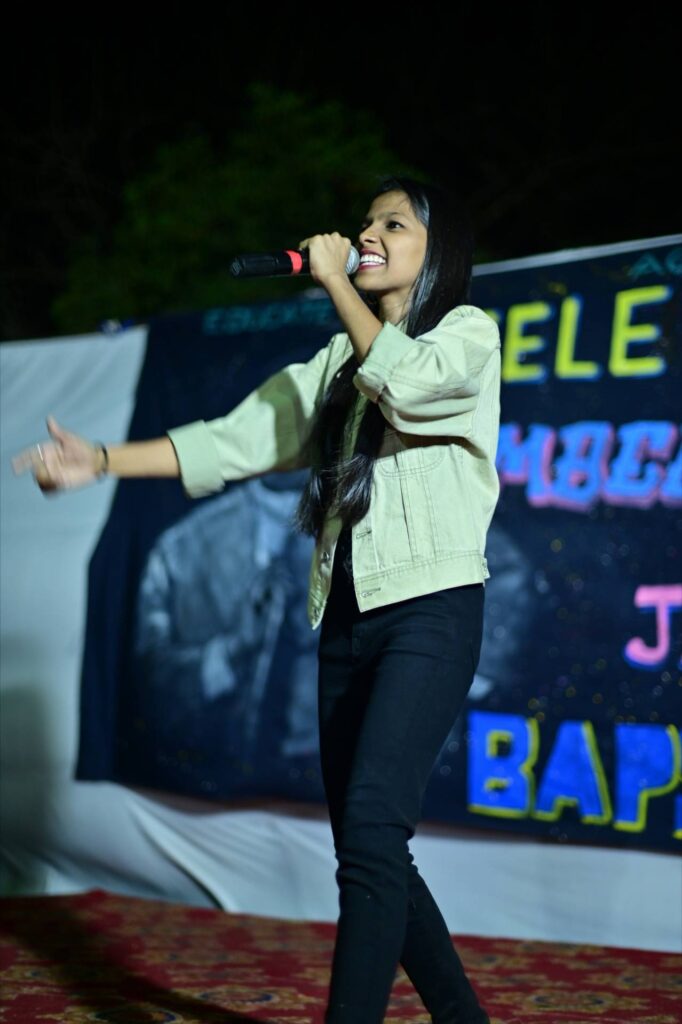Poetry led me here: Rapper Mahi Ghane

Mahi Ghane, a Marathi-Hindi rapper, who made her debut with the song ‘Jungle cha Raja’ in 2021, has caught everyone’s attention for writing hard-hitting songs addressing social issues. Through her music she has so far told stories about the Adivasi lifestyle, Babasaheb Ambedkar, and the damaging effects of development.
Mahi’s recently released song, ‘Haq se Hijda Hun’ delves into the journey of the hijras or the transgender community and their struggle for acceptance. Below are the edited excerpts from a telephonic interview with her.
Sana Irshad: Congratulations on your new song ‘Haq se Hijda Hun’. What was your inspiration behind the song and what was the moment when you decided you wanted to make a song on this topic?
Mahi Ghane: In my college days I used to travel in the local train and that’s when I observed that when hijra folk came or sat beside us or just walked by, people used to abuse them under their breath and feel affronted by their mere existence. But the same people, when the sun set down, would go to them to fulfil their sexual desires. It struck me that people use them both ways — they use them to quench their sexual thirst but do not give them any respect and also call them on celebratory occasions like childbirth. The people have made the word ‘hijra’ an abuse. People don’t give them social acceptance, outcast them, and snub them of all opportunities. I started to see that their struggle starts from there: When their entire existence is treated like an abuse, what respect will people give them and how much of a human will they even consider them?
Sana Irshad: How did your rapping journey begin? Did you always want to be a rapper?
Mahi Ghane: I started rapping only after college, that is, in 2019. However, I used to write poems. I was not into rap songs that much but whenever there was a rap song playing on television I used to be fascinated and curious about how rappers string big stories into few words to tell the story to the audience. I used to think I could never do this; poems were my only source of story-telling. However, when the farmers’ protest erupted in Delhi I realised I wanted to write something about it.
The younger generation was not paying attention to the protests, so to reach a younger and wider audience I decided I needed to start telling stories in a way that would attract them. That’s when I switched from poems and tried my hands at rapping. In 2019, I uploaded my first song on my social media account. It had only a few verses and at that time I didn’t have much of a following. However, my friends and family really appreciated my work. Finally, in 2021, I officially released another song named ‘Jungle cha Raja,’ and that’s how my hip-hop journey began.
Sana Irshad: How was the process of making your first song?
Mahi Ghane: I was looking for like-minded people who would want to produce socially responsible rap songs. I messaged people on Facebook and Instagram and also wrote emails. There is one artist in the Marathi industry called Rapboss, who is a rapper and music producer. He has his studio and when I contacted him, he immediately responded and called me to his studio to hear my music. He really liked it and gave beats to my rap verses. He wanted to produce the song and shoot it too. I was quite surprised by the positive response I received. It took us a year to put out the song because of the lockdown.
I didn’t even know the ABC of music, however he taught me patiently. We shot the music video in my village and neighbouring place in Ahmednagar district, with my own people. Because it’s a song about the Adivasi community and their culture and lifestyle we asked some artists who perform Adivasi dance form to be a part of our music video and they readily agreed. It was all a collective effort.
Sana Irshad: How was the reaction at home when you told them you want to get into rapping?
Mahi Ghane: My family didn’t really listen to rap music. They used to listen to Honey Singh and Badshah’s songs when they came on television but they didn’t even know it was called rap music. However, they really supported me. They were more impressed with the fact that I was incorporating social messages in my music.

Sana Irshad: How do you decide what next social issues you want to address in your music?
Mahi Ghane: I usually observe my surroundings and when something strikes me enough to pick my pen I just write it down.
Sana Irshad: Who inspired you the most in your musical journey or someone who you admire the most?
Mahi Ghane: Growing up I didn’t listen to rap songs much. My admiration of poetry is what led me here. But currently, there is a musical group called ‘Swadeshi’ who took their name from the Swadeshi movement. I’m listening to them; and Rapboss, who kind of introduced me to the intricacies of music. These are the people that I really admire and look up to for their work.
Sana Irshad: In future, who would you like to collaborate with?
Mahi Ghane: Right now I’m already working with people I want to work with.
Sana Irshad: What next social issue do you want to address through your music?
Mahi Ghane: I have written something about the people sleeping on the roadside who sell books, flowers etc. It is something that explores poverty.
